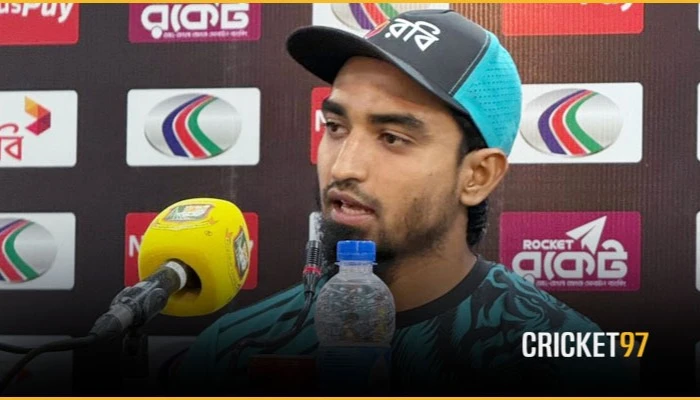Bangladesh lost the match in the Powerplay: Sakib
97 Repoter: Nazifa Tasnim
Publish: 3 months ago Update: 1 second ago-
1
BCB Announces 2026 Central Contract List
-
2
Abhishek out for a third consecutive duck, yet India remain unbeaten
-
3
BCB Clears Full Dues of Chattogram Royals Players
-
4
Harbhajan Angered by Amirs Remarks, Former Indian Spinner Backs Abhishek
-
5
Zimbabwe Unbeaten as Group Champions After Beating Sri Lanka

Bangladesh lost the match in the Powerplay: Sakib
Bangladesh lost the match in the Powerplay: Sakib
Bangladesh fell agonizingly short in the first T20I against West Indies, losing by 16 runs despite a late fightback. Chasing 166, the hosts battled till the end but paid the price for early batting failures. Tanzim Hasan Sakib and Nasum Ahmed’s 40-run stand for the seventh wicket briefly revived hopes, but the damage done in the Powerplay proved too costly.
With 47 runs needed off the last four overs, victory was still within reach, but Bangladesh’s lower order couldn’t finish the job. Speaking after the match, Tanzim expressed his disappointment for not being able to carry the team home despite laying a platform for a potential comeback.
“Coach Salahuddin sir always keeps faith in my batting,” Tanzim said. “He makes me bat a lot in practice, which gives me confidence. The team management also trusts me — from the players to the coaches — and they send me in believing that I can score runs.”
According to the young all-rounder, Bangladesh’s failure in the Powerplay was the turning point. Losing too many wickets early put the team on the back foot right from the start.
“Our batters lost their wickets in the Powerplay,” he admitted. “If they had stayed a bit longer and got set before getting out, the situation could have been very different. Still, I think the middle order could have taken a bit more responsibility. Those who got out early should have taken the game deeper — then maybe the result would have gone our way.”
Tanzim also analyzed the team’s overall batting display, praising Tanzid Hasan Tamim’s aggressive start but lamenting the lack of support from others.
“Tamim gave us a really good start; the way he was timing the ball early on was impressive,” he said. “But most of the other batters got out before settling in. There’s definitely concern about the middle order — they had the chance to take the game deep, especially after the field spread out. If we had batted smartly and built small partnerships, we could’ve taken the game much deeper.”



















